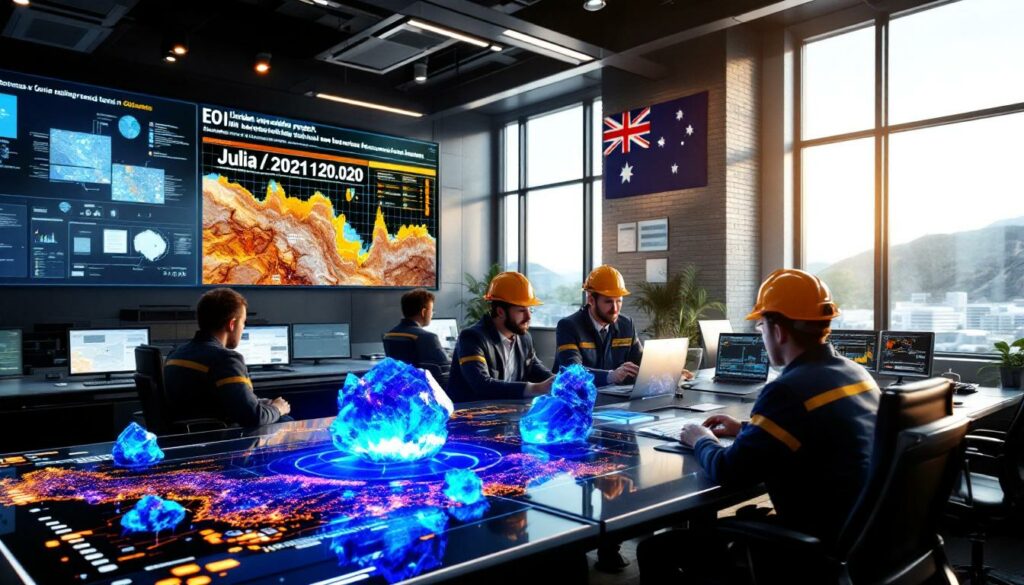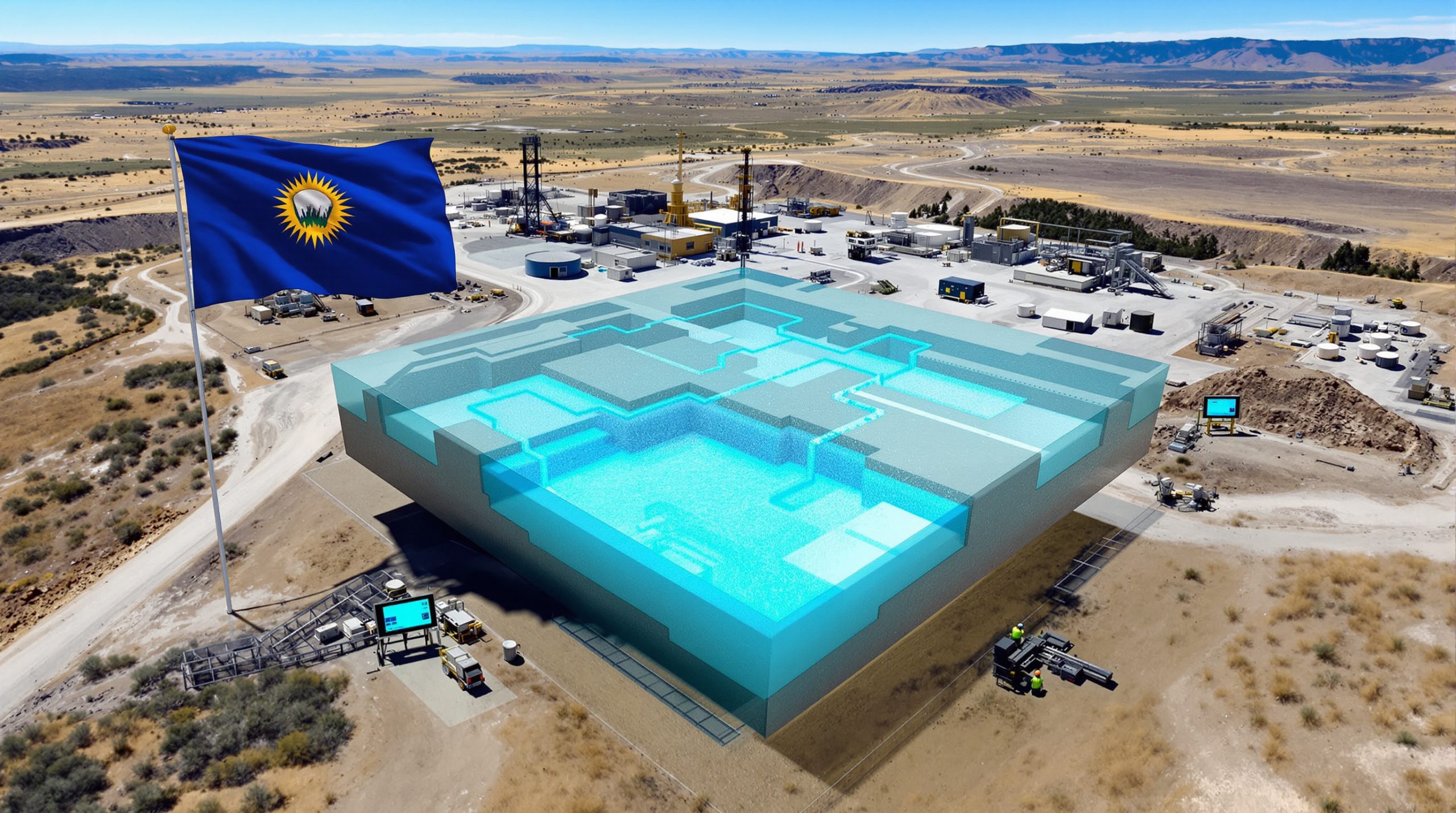Queensland's Bold Vision: Accelerating Resource Exploration in 2025
Queensland is making significant strides in boosting resource exploration during 2025, implementing strategic initiatives to attract investment and stimulate exploration growth in Queensland across the state's mining sector. With substantial funding allocations and streamlined regulatory processes, the state government is creating an environment conducive to exploration activities that will secure Queensland's position as a global mining powerhouse.
The New Exploration Expression of Interest Process Unveiled
The Queensland government has launched an innovative Expression of Interest (EOI) process that invites mining companies to nominate land for resources exploration. This initiative strategically focuses on infill regions adjacent to existing coal and gas tenures, creating a seamless expansion opportunity for current operators while opening doors for new entrants.
"Our EOI process represents a fundamental shift in how we approach resource development," explains Resources Minister Scott Stewart. "By focusing on areas adjacent to existing operations, we're maximizing efficiency and minimizing environmental impact while creating new economic opportunities."
The EOI process follows a clear timeline:
- Initial submission phase – Companies submit detailed proposals highlighting exploration capabilities
- Technical assessment – Government geologists evaluate geological potential and technical merit
- Stakeholder consultation – Engagement with local communities and existing tenure holders
- Final allocation – Competitive selection of successful applicants
For mining companies interested in participating, the Queensland Resources Department has established a dedicated portal with comprehensive guidelines detailing eligibility requirements and evaluation criteria.
Strategic Goals Driving Queensland's Exploration Push
Queensland's renewed focus on exploration stems from a clear vision to strengthen its position in the global resources market while creating sustainable economic benefits locally. Key objectives include:
- Creating a robust pipeline of exploration projects to ensure long-term resource sustainability
- Generating high-skilled employment opportunities across regional communities
- Attracting international investment to the state's mining sector
- Developing critical minerals reserve essential for the global energy transition
Industry analysts project that successful implementation of these initiatives could generate up to 5,000 new jobs across the resources sector by 2030, with potential economic contributions exceeding $12 billion annually.
Priority Exploration Regions Across Queensland
The Queensland government has identified several high-potential regions for accelerated exploration activities:
North West Minerals Province
This mineral-rich region centered around Mount Isa offers exceptional opportunities for copper, lead, zinc, and critical minerals exploration. Recent geological surveys have identified significant untapped potential in deeper formations that were previously inaccessible with older technologies.
Bowen Basin Extensions
The world-renowned Bowen Basin continues to present valuable opportunities for coal exploration, with particular interest in areas adjacent to existing operations where infrastructure can be leveraged for cost-effective development.
Julia Creek Vanadium Province
Perhaps the most exciting opportunity in Queensland's exploration landscape is the Julia Creek vanadium resource—a massive deposit estimated to contain over 7.8 billion tonnes of vanadium-bearing oil shale. The Queensland government has opened this area for exploration, recognizing its strategic importance for energy storage technologies and advanced manufacturing.
The Julia Creek Vanadium Opportunity: A Game-Changer
The Julia Creek vanadium resource represents one of the world's largest untapped deposits of this critical mineral. Located in north-western Queensland, this unique geological formation contains vanadium concentrations averaging 0.34% V₂O₅, making it globally significant.
"The Julia Creek deposit isn't just about its size—it's about its strategic importance in the energy transition," notes Dr. Rachel Wilson, Senior Geologist at the Queensland Geological Survey. "Vanadium flow batteries are emerging as a leading technology for grid-scale energy storage, and Queensland has the potential to become a critical supplier."
QEM Limited's Julia Creek project has already received "Coordinated Project" status, highlighting its importance to Queensland's economic future. The company is developing an integrated mining and processing operation that will produce both vanadium pentoxide and synthetic crude oil from the oil shale resource.
Key attributes of the Julia Creek opportunity include:
- Massive resource scale: Estimated 7.8 billion tonnes of vanadium-bearing oil shale
- Dual product potential: Both vanadium and petroleum products from the same resource
- Strategic location: Proximity to established transport infrastructure
- Processing innovation: Development of new extraction technologies specific to the deposit
Government Support: Financial Commitments and Regulatory Improvements
The Queensland government has made substantial financial commitments to support exploration growth in Queensland, including:
- $5.1 million allocation specifically targeted at accelerating mineral exploration
- $8.5 million funding for the Queensland Resources Common User Facility
- $30 million investment in the Mount Isa acceleration program to expedite new projects
These financial incentives are complemented by significant regulatory improvements designed to streamline exploration activities while maintaining robust environmental protections.
The newly established Queensland Resources Cabinet Committee has been instrumental in identifying and removing regulatory bottlenecks that previously delayed exploration activities. Through consultation with industry stakeholders, the committee has implemented several key reforms:
- Simplified approval processes for low-impact exploration activities
- Digital transformation of tenement management systems
- Coordinated assessment processes across different regulatory agencies
- Improved transparency in decision-making timeframes
These regulatory improvements have reduced average approval times by 37% compared to 2023, according to Queensland Resources Council data.
Queensland's Geological Advantages: A Treasure Trove of Opportunities
Queensland's geological diversity represents one of its greatest assets for resource exploration. The state hosts world-class deposits across multiple commodity types:
| Commodity | Key Regions | Global Significance |
|---|---|---|
| Coal | Bowen Basin, Surat Basin | World's largest seaborne coal export region |
| Copper | Mount Isa, Cloncurry | Top-tier copper province with century-long production |
| Critical Minerals | North West Minerals Province | Emerging hub for cobalt, rare earths, and vanadium |
| Natural Gas | Surat Basin, Cooper Basin | Major contributor to East Coast gas market |
| Bauxite | Weipa | One of the world's largest bauxite deposits |
This geological wealth is supported by advanced geoscience data, with the Queensland Geological Survey providing comprehensive datasets, 3D geological modeling capabilities, and pre-competitive information to reduce exploration risk.
Infrastructure Supporting Exploration Success
Queensland's exploration potential is significantly enhanced by its well-developed infrastructure networks that support efficient resource development. Key infrastructure advantages include:
- Transportation networks: Extensive rail corridors connecting mining regions to ports
- Port facilities: Specialized bulk commodity terminals at Gladstone, Townsville, and Brisbane
- Energy infrastructure: Reliable power generation and gas pipeline networks
- Water resources: Strategic water allocation planning for resource development
- Digital connectivity: Improving telecommunications across regional areas
The Queensland Resources Common User Facility represents a particularly innovative infrastructure development. This specialized facility provides access to testing and pilot plant capabilities that would otherwise be beyond the reach of junior exploration companies, enabling them to advance projects more rapidly through the development pipeline.
How Mining Companies Can Participate in Queensland's Exploration Boom
For mining companies looking to participate in Queensland's exploration opportunities, a strategic approach is essential. The competitive EOI process requires careful preparation and understanding of the state's priorities.
Navigating the EOI Process Successfully
To maximize chances of success, companies should:
- Focus on strategic alignment: Demonstrate how the exploration proposal supports Queensland's resource development objectives
- Highlight technical capabilities: Showcase innovative exploration technologies and methodologies
- Emphasize ESG credentials: Detail environmental management approaches and community engagement strategies
- Demonstrate financial capacity: Provide clear evidence of funding capabilities for both exploration and potential development
"The most successful EOI applications we've seen combine technical excellence with genuine community engagement plans. Companies that can demonstrate both tend to rise to the top of the evaluation process." – James Thompson, Director of Resource Tenements, Queensland Government
Collaboration Opportunities in the Queensland Exploration Ecosystem
Beyond the EOI process, numerous collaboration opportunities exist within Queensland's exploration ecosystem:
- Research partnerships with Queensland universities specializing in geoscience and mining engineering
- Joint ventures with existing tenure holders seeking to accelerate exploration of their holdings
- Technology partnerships with the Queensland Resources Common User Facility
- Indigenous partnerships with Traditional Owner groups across exploration regions
These collaborative approaches can provide access to knowledge, infrastructure, and social license that might otherwise be difficult for individual companies to develop independently.
Economic Implications: Beyond the Exploration Phase
The economic benefits of Queensland's exploration push extend far beyond the immediate activities. Successful exploration campaigns typically lead to development projects that generate substantial economic value over decades.
Job Creation and Skills Development
The exploration boom is already creating specialized employment opportunities across Queensland:
- Field-based roles: Geologists, field technicians, drilling teams
- Technical specialists: Geophysicists, geochemists, data scientists
- Support services: Logistics, accommodation, equipment maintenance
- Indigenous employment: Cultural heritage monitors, environmental specialists
To address skills shortages, the Queensland government has partnered with industry to establish the Resources Centre of Excellence in Mackay, providing specialized training for exploration and mining careers.
Investment Attraction and Market Response
Queensland's proactive approach to exploration is attracting significant interest from global investors. In the first quarter of 2025 alone, exploration investment increased by 18% compared to the same period in 2024, reaching $215 million.
International mining houses are particularly drawn to Queensland's transparent regulatory framework, established infrastructure, and geological potential. Junior explorers funding has also shown positive trends, with ASX data showing over $430 million raised for Queensland-focused exploration in the past 12 months.
Future Outlook: Queensland's Exploration Landscape 2025-2030
Looking ahead, several key trends will shape Queensland's exploration landscape over the next five years:
Emerging Technologies Transforming Exploration
Technological innovation is rapidly changing how exploration is conducted:
- Machine learning algorithms analyzing vast geological datasets to identify patterns invisible to human geologists
- Drone-based geophysics enabling rapid, low-impact data collection over large areas
- Passive seismic techniques providing deeper insights into subsurface structures
- Real-time sensor networks monitoring environmental conditions during exploration activities
These technologies are particularly valuable in Queensland's mature mining regions, where new discoveries increasingly rely on detecting subtle geological signatures that indicate deeper or hidden deposits.
Critical Minerals Focus Intensifying
The global energy transition is driving unprecedented demand for critical minerals, positioning Queensland's resources strategically in international markets:
- Vanadium demand is projected to increase 75% by 2030, driven by grid-scale battery adoption
- Copper requirements for electrification could create a 10 million tonne annual supply gap by 2030
- Rare earth elements essential for permanent magnets in electric vehicles and wind turbines face potential supply constraints
Queensland's geological settings are favorable for many of these minerals, creating a timely opportunity for targeted exploration.
Environmental and Social Governance (ESG) Considerations
Modern exploration increasingly integrates ESG principles from the earliest stages:
- Low-impact exploration techniques minimizing environmental footprints
- Early community engagement building social license for potential development
- Water stewardship planning integrated into exploration programs
- Rehabilitation planning incorporated into exploration design
Queensland's regulatory framework encourages this integrated approach, with environmental authorities for exploration activities requiring detailed management plans that address these considerations.
Challenges and Solutions in Queensland's Exploration Landscape
Despite the opportunities, several challenges must be addressed to maximize Queensland's exploration potential:
Exploration in Mature Mining Regions
Many of Queensland's established mining regions have seen decades of exploration, requiring new approaches to make discoveries:
- Deeper targeting beneath known deposits or cover sequences
- Re-examination of historical data with modern analytical techniques
- Alternative geological models challenging conventional understanding
- Brownfield exploration seeking extensions to known mineralization
The Queensland government's Collaborative Exploration Initiative provides co-funding for innovative exploration approaches in these mature regions, helping companies manage the higher costs and risks associated with testing new concepts.
Environmental Considerations
Maintaining Queensland's natural values while enabling exploration requires careful balancing:
- Strategic assessment of high conservation value areas
- Seasonal planning to minimize impacts during sensitive periods
- Rehabilitation innovation ensuring effective site restoration
- Water management protecting groundwater and surface water systems
The resources industry has responded with voluntary codes of practice that often exceed regulatory requirements, particularly for activities in environmentally sensitive areas.
"The most successful exploration companies view environmental protection as an opportunity for innovation rather than simply a compliance requirement. This mindset shift is transforming how exploration is conducted across Queensland." – Dr. Emma Chen, Environmental Manager, Queensland Resources Council
FAQ: Queensland Resource Exploration
What types of resources are prioritized in Queensland's current initiatives?
Queensland is prioritizing exploration for critical minerals essential to the energy transition, including vanadium, copper, cobalt, and rare earth elements. However, traditional resources like coal and gas remain important, particularly in areas adjacent to existing operations where infrastructure can be leveraged.
How does the government evaluate EOI submissions?
EOI submissions are evaluated through a multi-criteria analysis that considers:
- Technical merit and exploration methodology
- Financial and operational capability
- Environmental management approach
- Community engagement strategy
- Alignment with Queensland's strategic resource priorities
What support is available for junior exploration companies?
Junior explorers can access several support mechanisms:
- Collaborative Exploration Initiative grants for innovative exploration projects
- Access to the Queensland Resources Common User Facility for testing and development
- Pre-competitive geoscience data from the Queensland Geological Survey
- Networking and promotional opportunities through Trade and Investment Queensland
What are the environmental requirements for exploration?
Environmental requirements vary based on the type and location of exploration activities. At minimum, all exploration requires:
- An environmental authority appropriate to the level of disturbance
- Cultural heritage management plans where applicable
- Rehabilitation planning and financial assurance
- Water management and monitoring programs
Queensland's exploration renaissance in 2025 represents a strategic investment in the state's economic future. By combining geological opportunity with financial support, regulatory efficiency, and technological innovation, Queensland is positioning itself at the forefront of global resource exploration. For mining companies and investors, the message is clear: Queensland is open for exploration business, with unprecedented opportunities across both traditional and emerging resource sectors. Analyzing mineral exploration insights and drilling results insights can provide companies with additional perspectives on how to maximize their exploration success in this promising jurisdiction.
Ready to Capture the Next Major Mineral Discovery?
Don't miss out on significant ASX mineral discoveries that could generate substantial returns for your portfolio. Explore Discovery Alert's dedicated discoveries page to understand how their proprietary Discovery IQ model transforms complex mining data into actionable investment opportunities through real-time alerts.




